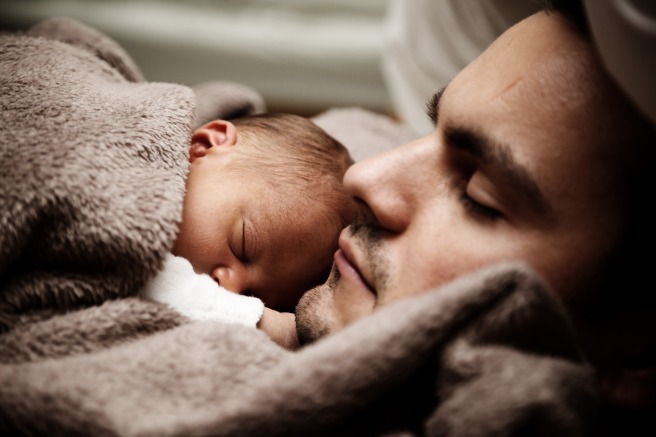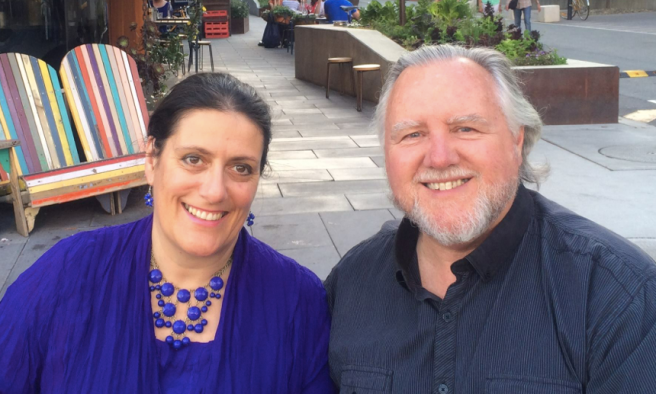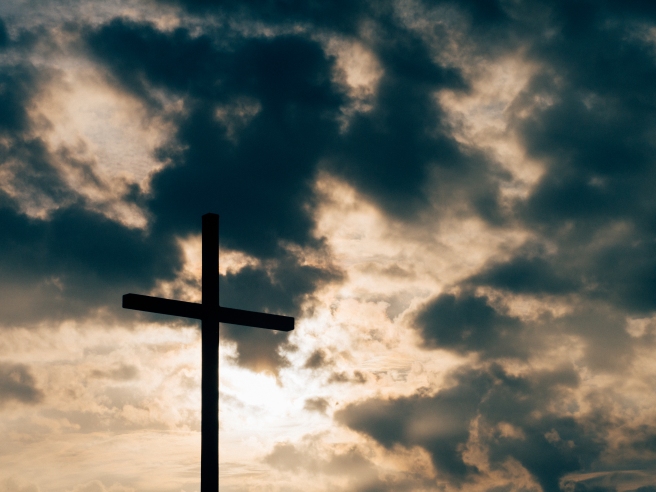
The issue of dependence is a difficult one, especially because Christians often adopt the prevailing attitude of our Western culture – that independence is always the highest ideal we should aspire to. I’ve noticed that many Christians put a spiritual spin on it, saying we should never depend on anyone else, except for God. While this may sound compelling and worthy of aspiring to, it needs to be examined more carefully.
Many cultures – especially collectivist cultures, such as in Asia, Africa or South America – understand that we are all dependent on each other to some degree. From our need for food and shelter to our craving for connection, we can’t escape the fact that to some extent, we will always be dependent on other people. (Of course God can supernaturally multiply food and so forth, but that is the exception rather than the rule.)
And ultimately we are all dependent on God, who provides all these things. Collectivist cultures accept and embrace this reality, rather than trying to pretend we are all free agents in control of our own destiny.
It seems to me that the Bible was written in the context of a collectivist culture, and even the metaphors for the church emphasise dependence. For example, the community of believers is described as a human body – and of course, each part is dependent on the other. Also, there are many Scriptures that point to the importance of friendships, for instance “carry each other’s burdens” and “in the presence of many counsellors, there is safety”. Even Jesus lived in community, while never fully entrusting himself to any person.
He sent the disciples out in pairs, not alone. And the disciples were a group who lived and spent the vast majority of their time together. Jesus had close friendships within the group of disciples. If believers did end up alone, it was usually due to persecution or some extenuating circumstance – not because they chose to launch out independently and “just depend on God”.
…
Now, I do understand that highly dependent relationships can become an issue, and when taken to an extreme can become idolatrous. I’m familiar with this due to my past experiences, as I have experienced a toxic, overly emotionally dependent friendship in my teenage years. Usually there are problems with boundaries and attachment, which complicates matters further. There is also often a high level of enmeshment and emotional manipulation involved.
However, I have now come to a point where I can have close, enduring friendships of interdependence, but not extreme dependence. The book ‘The Friendships of Women” by Dee Brestin addresses this issue quite well. Also, if you Google “emotional dependency” there are numerous websites describing the typical characteristics of unhealthy emotionally dependent friendships.
However, I have learned that nearly all friendships involve some degree of dependence, otherwise there is usually no vulnerability, intimacy or openness. It seems the word “interdependence” is a good way of describing this healthy, normal form of dependence, which is experienced in close friendships, family relationships and marriages. In fact, attachment theorists have discovered a concept known as the “dependency paradox” where the more dependent we are on our spouse – the more confident and successful we can be.
…
Which brings me to my next point – attachment theory goes against the grain of the ideals of our Western culture, and points out that our most foundational relationships require mutual dependence. Like I said, researchers have discovered a fascinating concept known as the “dependency paradox”. It started when researchers observed parents and children.
The children who relied most on their parents and had a secure attachment, also showed the greatest freedom to explore the world and confidence to try new things. Amazingly, a similar concept applies to marriage. The more we trust and depend on our spouse, the more confident we become and the more we can achieve. This is because we know the relationship is secure, and instead of focusing on the lack of connection in the relationship – we are free to focus on other aspects of life.
I strongly believe that the more we learn to depend on God AND other people in healthy, secure relationships (whether close friends or a spouse), the more we will be free to focus on the Kingdom – rather than getting paralysed by the loneliness or anxiety we feel. When our “attachment system” is set off, it prevents us from focusing on other important aspects of life such as work, ministry, and other worthwhile pursuits.
This is most pronounced in people with an Anxious attachment style, compared to Secure and Avoidant types. I would highly recommend reading the book “Attached” by Amir Levine and Rachel Heller, because it has completely challenged my preconceptions about relationships – and what is the ideal we should be aspiring to!
…
Which brings me to my final point, about the reasons why people advocate independence so strongly and may fear dependence to a great degree. Many people with an Avoidant attachment style come from a place of insecurity and a fear of “needing” other people. These people are on the opposite extreme of the spectrum to me.
I don’t think either extreme of being Anxious or Avoidant is ideal, although it helps to put in perspective why some people struggle more than others with issues related to being dependent. I also think it’s common for Avoidant people to spiritualise their independent attitude by claiming that we have to “just depend on God” which is not always entirely healthy… and could mask their fear of vulnerability and intimacy.
…
Anyway, I felt it was important to address this issue thoroughly, because the idea of being dependent versus independent is so strongly influenced by our culture, our attachment style, and our spiritual background. While I believe that being dependent on God is very important – and God must always come first – I don’t think it needs to be at the expense of having healthy, interdependent relationships with a spouse, close friends or a broader community. Further, when people criticise others for being too dependent, it usually makes matters worse, rather than better.
We would be far better off acknowledging the reality that God made us for community and for relationships, rather than rebuking people and making them feel shame for a perfectly normal desire. Not only that, loneliness is so prevalent in our culture, and I’ve noticed that some people take a “blame the victim” mentality. This is even worse in Christian circles, where people are made to feel condemned for “not depending on God enough”. While identifying too strongly as a victim can lead to feelings of powerlessness, I also think that accepting the fact that the structure of our society leads to much loneliness is wise, mature and honest.
Instead of blaming or condemning people, I feel it would be better to acknowledge their grief and struggle – and simply pray for them. Often the people who condemn others are actually the ones who disavow their own needs, and are fearful of being vulnerable and of holding space for those who are suffering.
Image Source: Pexels





